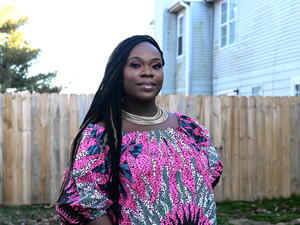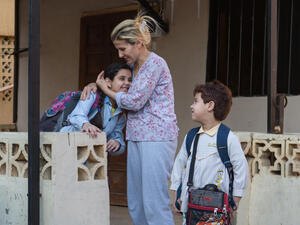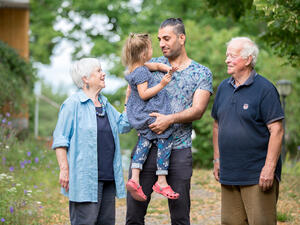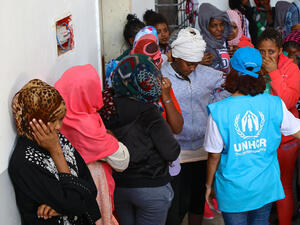UNHCR sponsors study of Islamic influence on international refugee law
UNHCR sponsors study of Islamic influence on international refugee law
A new study published by UNHCR in cooperation with Naif Arab University and the Organisation of Islamic Conference (OIC) says Islam's 1,400-year-old tradition of generosity toward people fleeing persecution has had more influence on modern-day international refugee law than any other historical source.
The comparative study, commissioned by UN High Commissioner for Refugees António Guterres and contained in a book by Cairo University Law Professor and Dean of the Law Faculty, Ahmed Abu Al-Wafa, is scheduled for release on Tuesday at Naif Arab University in Riyadh, Saudi Arabia. Presiding over the launch will be Prince Naif bin Abdul Aziz, Second Deputy Premier, Minister of Interior and head of Naif Arab University's Supreme Council, together with the High Commissioner, the president of the university and a representative of the OIC.
In his foreword to "The Right to Asylum Between Islamic Shari'ah and International Refugee Law: A Comparative Study," Guterres says the book shows that more than any other historical source, Islamic law and tradition underpin the modern-day legal framework upon which UNHCR bases its global activities on behalf of tens of millions of uprooted people. This includes the right of everyone to seek and enjoy asylum from persecution as well as prohibitions against sending those in need of protection back into danger.
"Even though many of those values were a part of Arab tradition and culture even before Islam, this fact is not always acknowledged today," Guterres writes. "The international community should value this 14-century-old tradition of generosity and hospitality and recognize its contributions to modern law."
In his study, Professor Abu Al-Wafa describes how Islamic law and tradition respect refugees, including non-Muslims; forbids forcing them to change their beliefs; avoids compromising their rights; seeks to reunite families; and guarantees the protection of their lives and property.
"Today, the majority of refugees worldwide are Muslims," Guterres writes. "This fact occurs at a time when the level of extremism -- ethnic and religious -- is on the rise around the globe, even in the world's most developed societies. Racism, xenophobia and populist fear-mongering manipulate public opinion and confuse refugees with illegal migrants and even terrorists.
"These attitudes have also contributed to misperceptions about Islam, and Muslim refugees have paid a heavy price. Let us be clear: refugees are not terrorists. They are first and foremost the victims of terrorism. This book reminds us of our duty to counter such attitudes."
The book also reflects UNHCR's close association with the member states of the Organization of the Islamic Conference (OIC), which itself adopted in 1990 a Declaration on Human Rights in Islam stipulating that every human being fleeing persecution has the right to seek asylum and receive protection in another country.
In his foreword to the book, OIC Secretary-General Ekmeleddin Ihsanoglu notes that the book "demonstrates the equitable and tolerant rules Islamic Shari'ah applies to refugees and how it is keenly concerned with their welfare and interests, while confirming human integrity and man's right to a free, decent life."
Naif Arab University's president, Professor Abdul-Aziz bin Saqr al-Ghamedi, said the theme of the study "gains importance in the light of the increase in recent years in the numbers of refugees in Arab and Islamic countries."
Prof. Ahmad At-Tayyib, president of al-Azhar University in Cairo, noted that the Arab concept of asylum" or "ijarah" pre-dated Islam and was endorsed by Islamic Shari'ah "because it was one of the established good practices in their traditions and customs, involving noble manners and ethical values such as rescue of people in distress and protection of the oppressed."








